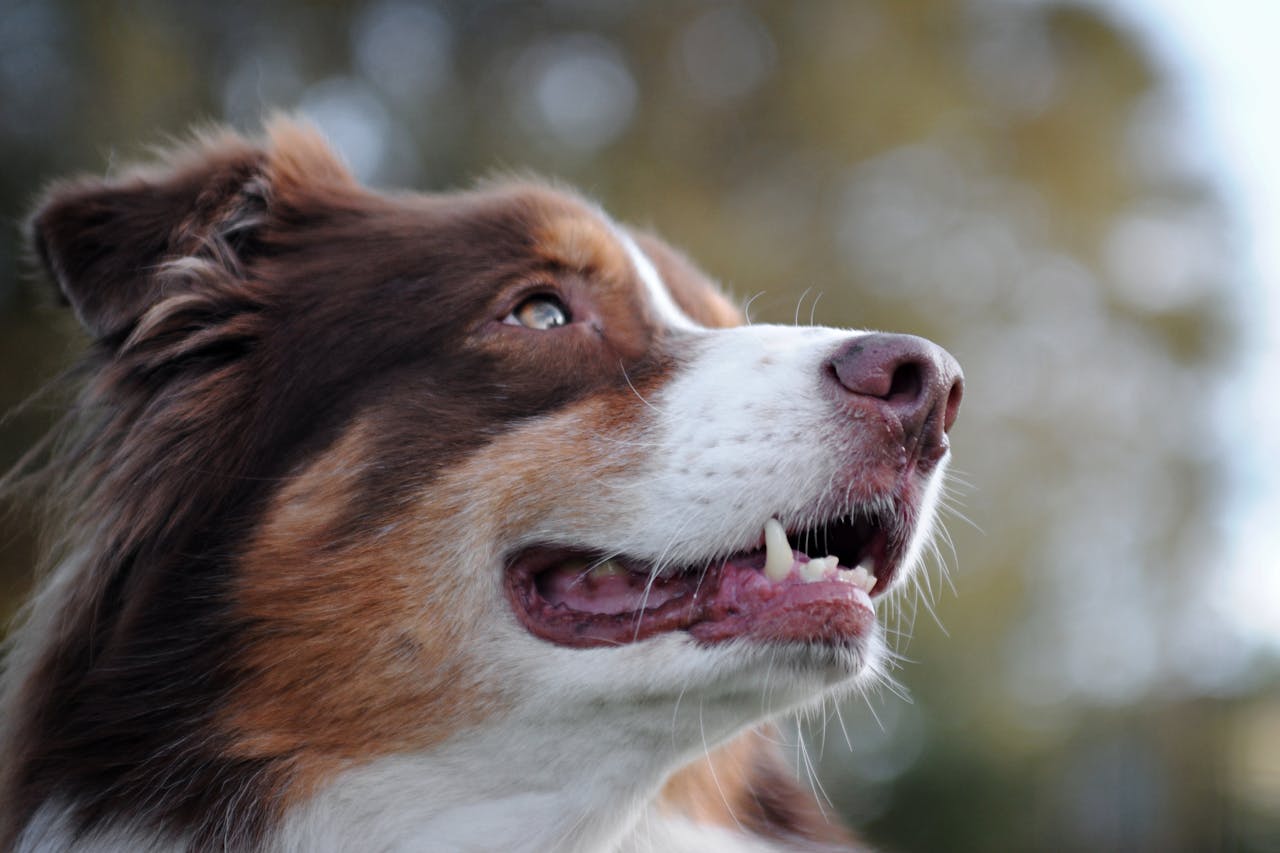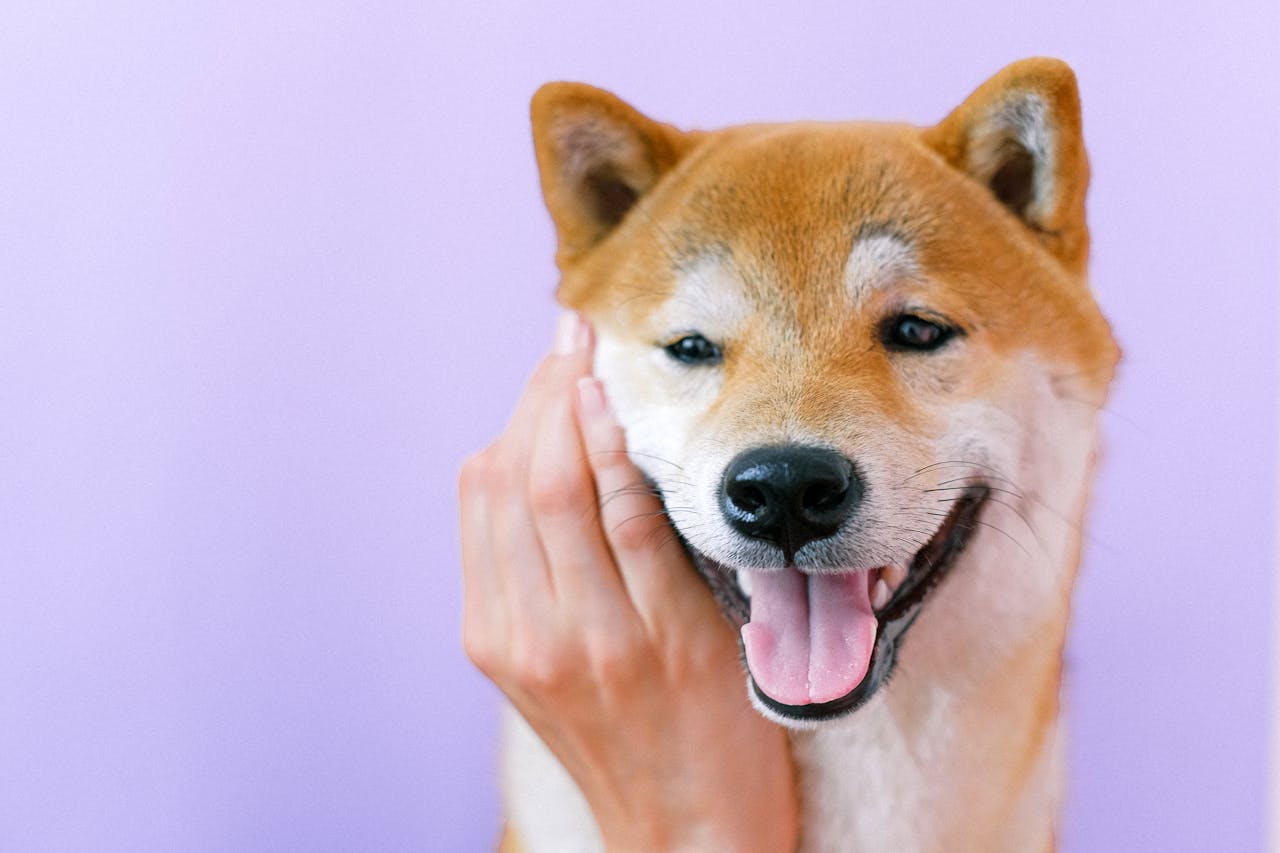Hey Ollie blog readers! We’re offering you an exclusive 60% OFF your starter box! Try now!
Seeing your dog vomit can be concerning, especially when the vomit is yellow. If your dog is throwing up yellow bile, you may be wondering whether it’s normal or if you should be worried. While occasional bile vomiting can happen in healthy dogs, frequent or repeated episodes may indicate an underlying issue that requires attention.
The yellow color in vomit comes from bile, a digestive fluid produced by the liver and stored in the gallbladder. Bile helps break down fats and aids digestion, but when a dog’s stomach is empty for too long or their digestive system is irritated, excess bile can build up and lead to vomiting. Several factors can contribute to this, including diet, meal timing, food sensitivities, or gastrointestinal conditions.
One of the most common causes of bile vomiting is an empty stomach, which is why some dogs throw up in the morning before their first meal. However, diet plays a crucial role as well. Low-quality dog foods filled with artificial additives and fillers can be difficult to digest, leading to irritation and increased bile production. Many dogs experience fewer digestive issues when fed a high-quality, fresh diet like Ollie, which contains gently cooked, whole ingredients that support gut health and reduce inflammation.
In this guide, we’ll explore the most common reasons dogs throw up yellow bile, how to help your dog feel better, and ways to prevent future episodes through proper nutrition and care.
Key Takeaways
- Dogs may vomit yellow bile due to an empty stomach, dietary issues, or underlying health conditions. Occasional vomiting isn’t always a concern, but frequent episodes should be addressed.
- Meal timing, hydration, and diet quality play a major role in preventing bile vomiting. Feeding smaller, more frequent meals can help reduce bile buildup.
- Low-quality dog foods can contribute to digestive issues. Switching to a fresh, highly digestible diet like Ollie can help support gut health and reduce the risk of bile vomiting.
What Is Yellow Bile and Why Do Dogs Vomit It?
Yellow bile is a digestive fluid produced by the liver and stored in the gallbladder. Its primary function is to help break down fats and aid digestion. Under normal circumstances, bile is released into the small intestine after a dog eats, where it helps process food and absorb nutrients. However, when a dog’s stomach is empty for an extended period, bile can accumulate and irritate the stomach lining, leading to vomiting.
This condition, known as bilious vomiting syndrome, is one of the most common causes of yellow vomit in dogs. It typically happens in the morning or late at night when a dog has gone hours without eating. In some cases, bile vomiting can also occur due to dietary issues, gastrointestinal diseases, or more serious health conditions.
Is Bile Vomiting Normal or a Sign of a Bigger Problem?
Occasional vomiting of yellow bile is fairly common in dogs and may not be a cause for concern, especially if your dog is otherwise healthy and acting normal. However, frequent or recurring bile vomiting could indicate an underlying issue that needs to be addressed. Some dogs are more prone to bile vomiting due to their meal schedule, while others may experience it due to food intolerances, stomach irritation, or digestive disorders.
One of the biggest factors influencing bile production is diet quality. Low-quality dog food, often filled with artificial additives, fillers, and poorly digestible proteins, can contribute to stomach inflammation and excessive bile production. Feeding a fresh, nutrient-rich diet, which contains whole, high-quality ingredients, can help soothe the digestive tract and reduce bile-related vomiting.
Understanding why your dog is vomiting bile is the first step toward finding the right solution. In the next section, we’ll break down the most common causes of yellow bile vomiting and what you can do to help your dog.
Common Causes of a Dog Throwing Up Yellow Bile
Dogs may vomit yellow bile for a variety of reasons, ranging from mild digestive upset to more serious health conditions. Understanding the underlying cause can help you determine whether your dog’s bile vomiting is harmless or requires veterinary attention.
1. Empty Stomach (Bilious Vomiting Syndrome)
One of the most common reasons dogs vomit yellow bile is because their stomach is empty for too long. When a dog goes several hours without food, bile can build up in the stomach and irritate the lining, leading to vomiting. This often happens:
- In the morning before breakfast
- Late at night if their last meal was too early
- If they miss a meal or have an irregular feeding schedule
Dogs prone to bilious vomiting syndrome may benefit from smaller, more frequent meals to keep their stomach from becoming empty for too long.
2. Diet Issues & Food Sensitivities
Poor diet quality can contribute to frequent bile vomiting. Many commercial dog foods contain low-quality fillers, artificial additives, and heavily processed ingredients that can irritate the digestive system. Additionally, some dogs may have sensitivities to common allergens like chicken, beef, wheat, or dairy, which can trigger vomiting, diarrhea, or chronic stomach upset.
Switching to human-grade fresh dog food can help dogs with food sensitivities by eliminating common allergens and using high-quality, whole-food ingredients that support better digestion.
3. Eating Too Fast
Some dogs gulp down their food too quickly, leading to ingestion of excess air and stomach irritation, which may cause vomiting. Using a slow-feeder bowl or breaking meals into smaller portions can help prevent this issue.
4. Gastrointestinal Diseases
Chronic bile vomiting can sometimes be a symptom of underlying digestive disorders, including:
- Gastroesophageal reflux (acid reflux) – Similar to heartburn in humans, where stomach acid and bile irritate the esophagus.
- Pancreatitis – Inflammation of the pancreas, often triggered by eating high-fat foods.
- Inflammatory bowel disease (IBD) – A condition that causes chronic inflammation in the digestive tract.
- Bacterial or viral infections – Certain infections can disrupt digestion and lead to bile vomiting.
5. Intestinal Blockage
If your dog is vomiting yellow bile frequently and also showing signs of lethargy, bloating, or loss of appetite, they could have an intestinal obstruction caused by swallowing a foreign object. This is a medical emergency and requires immediate veterinary care.
6. Liver or Gallbladder Issues
Since bile is produced in the liver and stored in the gallbladder, any dysfunction in these organs can lead to abnormal bile production and vomiting. If your dog has other symptoms such as jaundice (yellowing of the skin or eyes), excessive thirst, or sudden weight loss, consult your vet.
When to Be Concerned
Occasional bile vomiting may not be a cause for concern, but if your dog is vomiting frequently, acting lethargic, refusing food, or showing other symptoms of illness, it’s important to seek veterinary care.
In the next section, we’ll go over what you can do at home to help your dog if they’re vomiting bile and when it’s time to call the vet.
What to Do If Your Dog Is Vomiting Yellow Bile
If your dog vomits yellow bile occasionally and otherwise seems healthy, there are a few steps you can take at home to help reduce the frequency of vomiting. However, if the vomiting is persistent, severe, or accompanied by other concerning symptoms, a vet visit is necessary.
1. Monitor Symptoms and Behavior
Before making any changes, observe your dog’s overall health. Occasional bile vomiting may not be a cause for concern, but if your dog is also experiencing diarrhea, lethargy, dehydration, loss of appetite, or abdominal pain, it’s best to consult your vet immediately.
2. Adjust Meal Timing
One of the simplest ways to prevent bile vomiting is by feeding smaller, more frequent meals throughout the day. When a dog’s stomach remains empty for too long, bile builds up and causes irritation. Try:
- Splitting their daily food into three or four smaller meals instead of one or two large ones.
- Giving a small bedtime snack to prevent overnight bile accumulation.
3. Improve Diet Quality
Diet plays a major role in digestive health, and low-quality food can contribute to chronic bile vomiting. Many commercial dog foods contain artificial additives, preservatives, and hard-to-digest fillers that irritate the stomach. Additionally, some dogs are sensitive to common protein sources like chicken or beef, which may trigger an inflammatory response.
Switching to a fresh, whole-food diet can help reduce bile vomiting by:
- Providing high-quality, digestible ingredients that are gentle on the stomach.
- Eliminating artificial additives and fillers that may cause irritation.
- Incorporating essential nutrients like omega-3s and prebiotics to support gut health.
4. Encourage Hydration
Vomiting can lead to dehydration, especially if your dog is refusing water. Encourage hydration by:
- Offering small amounts of water frequently instead of large gulps.
- Providing bone broth or ice cubes for a more appealing hydration option.
5. Slow Down Fast Eaters
Dogs that eat too quickly may gulp excess air, leading to stomach upset and vomiting. If your dog is prone to eating too fast:
- Use a slow-feeder bowl to encourage slower eating.
- Serve food in smaller portions to prevent overloading the stomach.
6. Rule Out Underlying Health Conditions
If vomiting persists despite dietary adjustments, there may be an underlying medical condition at play, such as acid reflux, pancreatitis, or gastrointestinal disease. Your vet may recommend diagnostic tests, such as blood work, X-rays, or an ultrasound, to determine the cause.
By feeding a high-quality, nutrient-rich diet and ensuring proper meal timing, many dogs can experience significant relief from bile vomiting. However, if symptoms persist or worsen, veterinary care is essential to rule out more serious conditions.
When to See a Vet
Occasional vomiting of yellow bile may not be a cause for concern, especially if your dog quickly returns to normal. However, frequent or severe vomiting can signal an underlying health issue that requires veterinary attention. Knowing when to seek medical help can make a big difference in preventing complications.
Signs That Your Dog Needs Veterinary Care
Contact your vet if your dog shows any of the following symptoms along with bile vomiting:
- Vomiting multiple times a day or over several consecutive days
- Loss of appetite or refusal to eat for more than 24 hours
- Diarrhea along with vomiting, which increases the risk of dehydration
- Lethargy or weakness, indicating a deeper health issue
- Excessive drooling or signs of nausea, such as lip licking or gulping
- Signs of dehydration, including dry gums, sunken eyes, or reduced energy
- Blood in vomit or stool, which may appear bright red or dark and tarry
- Abdominal bloating or pain, which could indicate pancreatitis or an obstruction
What to Expect at the Vet
If your dog requires veterinary care, the vet may perform the following:
- A physical exam to check for pain, bloating, or other abnormalities.
- Blood tests to assess liver, kidney, and pancreatic function.
- X-rays or an ultrasound to check for blockages or gastrointestinal disease.
- Fecal testing to rule out parasites or infections.
Treatment will depend on the underlying cause but may include anti-nausea medications, fluids for dehydration, dietary adjustments, or further testing if a serious condition is suspected.
Preventing Future Bile Vomiting
Many cases of bile vomiting can be prevented with proper meal timing and a high-quality diet. If your dog frequently experiences digestive issues, switching to a fresh, minimally processed diet like Ollie can help provide the nutrient-rich, digestible ingredients needed for better gut health.
By monitoring symptoms and making dietary adjustments, you can help reduce the likelihood of recurring bile vomiting. However, if vomiting becomes frequent or severe, it’s always best to consult a veterinarian.
A Healthy Diet = A Healthier Stomach
Many cases of bile vomiting can be prevented by feeding a nutrient-rich, digestible diet that supports long-term gut health. Ollie fresh dog food, made with whole, high-quality ingredients, eliminates common allergens and irritants, making it an excellent choice for dogs with sensitive stomachs.
By adjusting meal frequency, improving diet quality, and monitoring digestion, you can help prevent bile vomiting and keep your dog feeling their best.
Frequently Asked Questions About A Dog Throwing Up Yellow
1. Is it normal for a dog to throw up yellow bile?
Occasional vomiting of yellow bile can be normal, especially if a dog’s stomach is empty for too long. However, frequent vomiting may indicate an issue with meal timing, diet quality, or an underlying health condition that needs to be addressed.
2. Should I feed my dog after they vomit bile?
If your dog vomits bile once and appears otherwise normal, offering a small, easily digestible meal can help settle their stomach. If vomiting persists, it’s best to withhold food for a few hours and monitor for additional symptoms before feeding again.
3. Can diet changes help prevent bile vomiting?
Yes, diet plays a major role in preventing bile vomiting. Feeding a fresh, high-quality diet can help reduce stomach irritation by eliminating artificial additives and using digestible, whole-food ingredients that support gut health.
4. Does yellow bile vomiting mean my dog is sick?
Not always. While an empty stomach is a common cause, frequent or chronic vomiting of bile could indicate acid reflux, food sensitivities, pancreatitis, or liver disease. If vomiting is accompanied by other symptoms like diarrhea, lethargy, or loss of appetite, consult a vet.
5. What’s the best food for dogs with sensitive stomachs?
Dogs with sensitive stomachs often do best on a fresh, minimally processed diet free from common allergens like chicken, beef, wheat, and artificial preservatives. Ollie fresh dog food is formulated with gently cooked, high-quality ingredients, making it a great option for dogs prone to digestive issues.
Tagged As:

The nutrition your dog needs,
the food they want.

Enjoying our articles? Subscribe our Newsletters and get new articles directly to your inbox
You might also like
30 October 2025
8 MINS READ
Dog Dental Chart: Learn About Dog Dental Health
We all love a big, slobbery smile from our dogs. But if you’ve ever been hit with a wave of that signature “dog breath,” you’ve probably wondered what’s going on in there—and if you sh…
by Ollie Pets
30 October 2025
8 MINS READ
Dog Tongue Color Meaning & Chart: Black, Blue, Purple & Spotted
Let’s be honest—most of us don’t think about our dog’s tongue unless it’s giving us a sloppy kiss or hanging out after a game of fetch. But that tongue? It’s more than just a licker. I…
by Ollie Pets
30 October 2025
8 MINS READ
Dog Gum Color Meaning: Healthy vs. Unhealthy Signs
Ever lifted your dog’s lip and thought, “Huh. Is that what their gums usually look like?” If so, you’re not alone—and you’re also not overreacting. While gum checks might not be par…
by Ollie Pets







